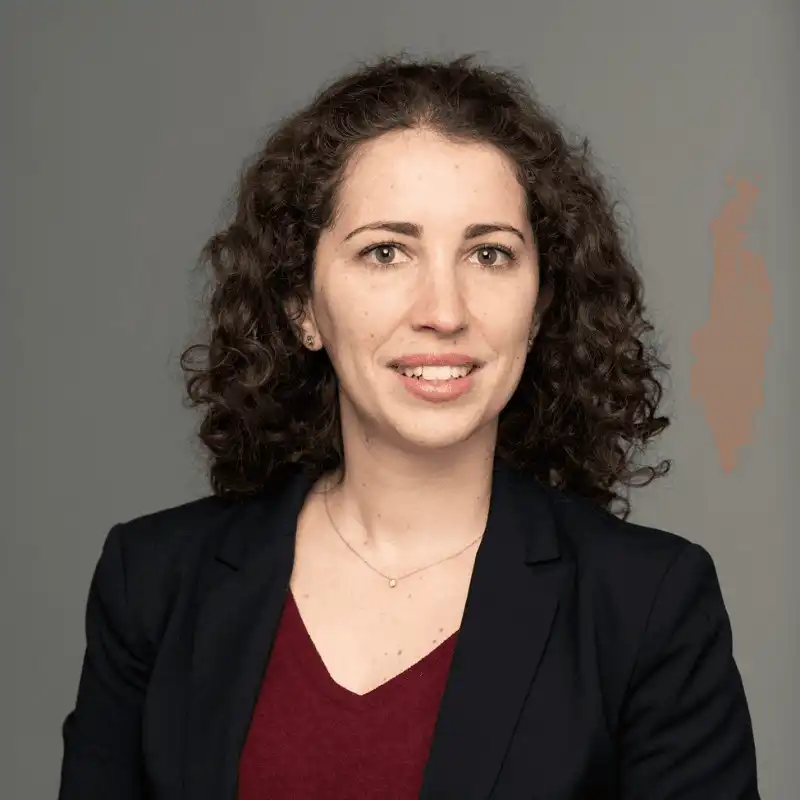Home>Céline Ramstein: Answering Climate’s Questions
14.06.2022
Céline Ramstein: Answering Climate’s Questions

Céline Ramstein is an Energy and Climate Specialist at the World Bank. She entered the domain of climate change and policy after completing a Master of International Affairs and an M.S. from a dual degree program with Sciences Po and Pierre and Marie Curie University in 2012—a time when careers in climate change policy were not common. After graduating, she worked as the Deputy Attaché for environment and sustainable development at the French Embassy in the United States, before moving on to become the COP21 Project Manager at the Institute for Sustainable Development and International Relations (IDDRI). Following her time working on COP21, she joined the World Bank, working as a Climate Change Analyst and Program Coordinator until reaching her current position as an Energy and Climate Specialist.
Céline graduated from a special program combining sciences and international affairs and political sciences. From Sciences Po, she gained an understanding of social sciences, coupled with technical knowledge from Pierre and Marie Curie University. Throughout her studies, Céline focused heavily on environmental science and policy, which is the field she remains in today. “What drove me to this dual program and to Sciences Po was the ability to study so many topics in an "action-oriented way,” she says. She had also completed her undergraduate degree in a similar dual degree program.
Céline reflects fondly on the ability to study many topics and have access to talented professors in the program. “The knowledge and commitment of the professors I had during my time at Sciences Po and Pierre and Marie Curie University was outstanding, and I remain in touch with many of them today,” Céline notes. “Sciences Po also grants a level of access to key specialists, elected officials or activists through many events”.
Céline speaks to the changes she has witnessed in her field. Climate change is a topic that went underestimated for a long time, including in Sciences Po curriculum, but is becoming more central in media and politics. “When I started my career, the challenge was convincing people we needed to do something. Now, the question is more around how do we do it? This is by no means an easier question, and we certainly do not have all the answers,” she says.
Céline explains how the Paris Accords passed in 2015 changed her career trajectory. Up until that point, she had been working on international negotiations, aiming for such an international climate agreement. Once this was achieved, she shifted towards implementation rather than negotiation. “I feel strongly that climate justice is the major issue of our time,” she says. “The poorest countries in the world, the countries who are least responsible for climate change, will suffer the greatest consequences.” She joined the World Bank working originally on the economic and policy end of climate change and then shifted to a focus on energy issues. Currently, Céline works on energy projects in Africa, financing renewable energy investments and access to clean and affordable electricity. “I like this aspect a lot because it’s very concrete,” she says. “I like seeing the impact we can have on the ground.”
Céline speaks to challenges within her field as well. One recurring issue is that change does not happen fast enough. “We are dealing with problems that should have been resolved decades ago, and we need much more efforts from developed countries”. Another challenge is the lack of support and finance. “The needs are so huge, that you feel like a small drop of water. At the World Bank, I can see impact at scale. But I always feel like we are not able to do enough.” A third issue, especially in Africa, is the security situation. “It is not easy to implement long-term solutions or to work in some areas because of various instabilities.”
The skills Céline learned at Sciences Po help her tackle some of these challenges. “Sciences Po is a global university. I was used to working with different nationalities. We collaborated across different languages and cultures. In my daily job, no one on my team shares the same nationality. So, Sciences Po made it natural for me to manage an international team and to work with very different cultures,” she says. “Another thing I found important is the skill of project management. The ability to multitask, to push for things, stand for your values, and have a long-term vision is something that Sciences Po taught me well through our environmental NGO (Sciences Po Environment for which I was president) or as an elected student union representative.
Céline leaves a word of advice for younger students interested in climate change: “Do not stress about getting the ONE perfect job right away. Being a generalist like Sciences Po prepares us for is fine, but it can be useful to complement it with some core skills.”
In her free time, Céline created and hosts a podcast (in French) on climate change called Le Climat en Questions, available on Apple or Spotify.